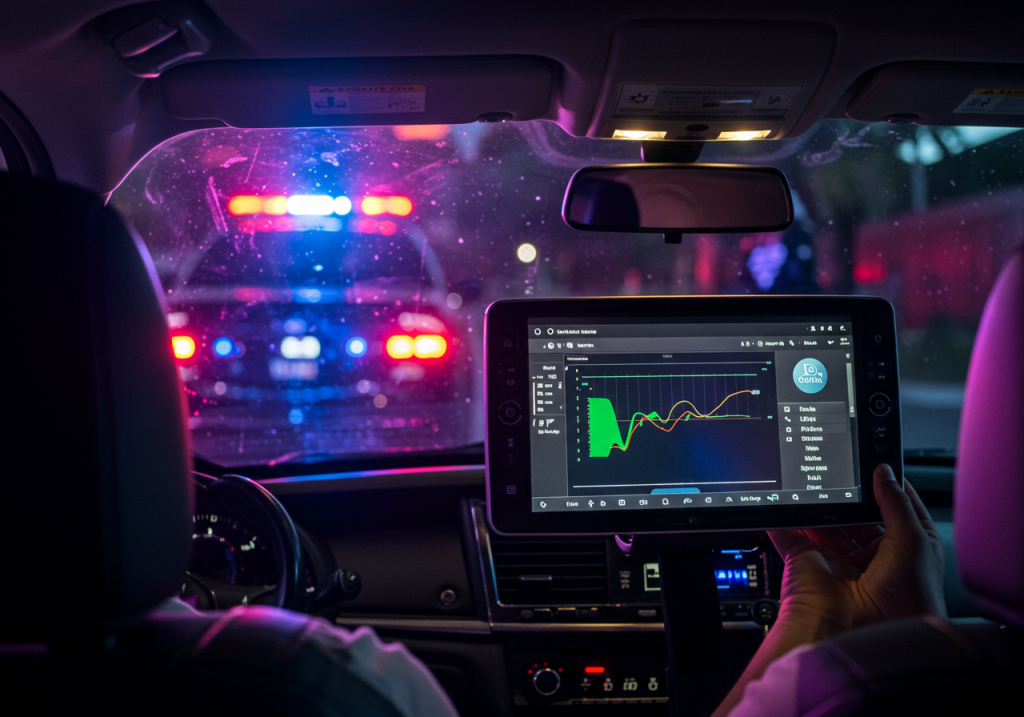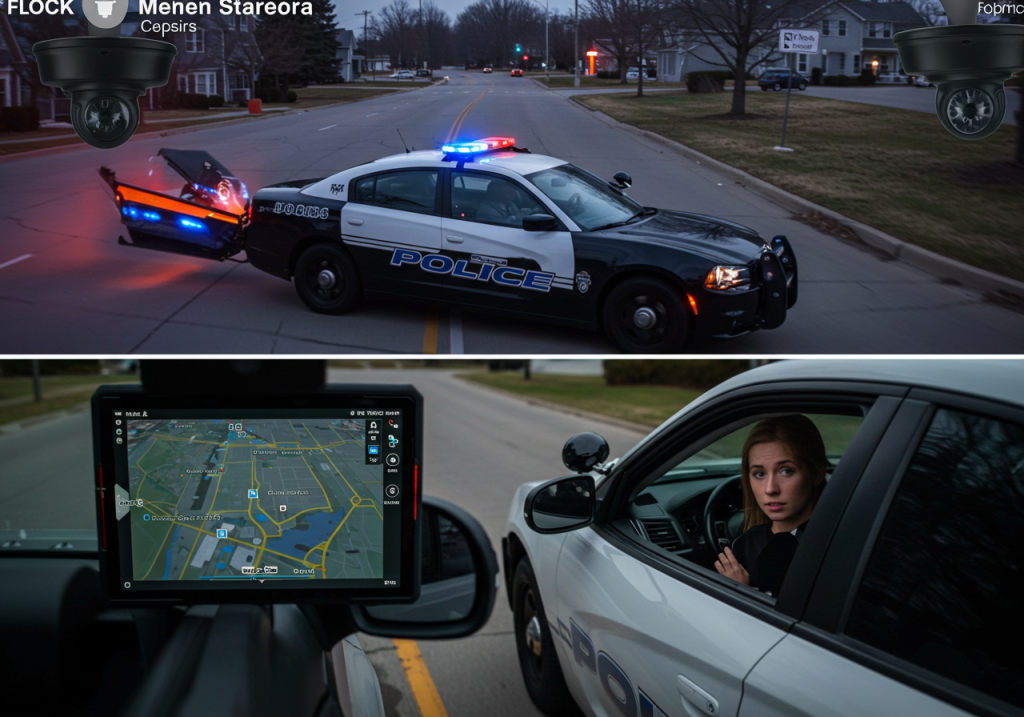
The Rise of Flock Cameras and Fourth Amendment Challenges
Flock Safety’s automated license plate readers (ALPRs) have sparked a nationwide debate over mass surveillance. With over 5,000 communities using these cameras, including Norfolk, Virginia (172 cameras) and Illinois (652 cameras), law enforcement agencies track vehicles in real-time, creating “vehicle fingerprints” that map drivers’ movements without warrants 1713. This system, criticized as a “curtain of technology,” raises critical Fourth Amendment concerns, as courts increasingly liken its pervasive tracking to the warrantless cellphone location monitoring deemed unconstitutional in Carpenter v. United States (2018) 111.
For citizens—especially innocent individuals and reentry citizens navigating probation or parole—understanding how to challenge Flock-based stops and prosecutions is vital. Below, we outline actionable legal strategies grounded in recent case law and constitutional principles.
Key Case Law and Precedents
- Carpenter v. United States (2018)
The Supreme Court ruled that long-term location tracking via cellphone data constitutes a “search” under the Fourth Amendment, requiring a warrant. Courts in Norfolk and Illinois have applied this logic to Flock’s ALPR systems, noting that aggregated location data from hundreds of cameras creates a “digital mosaic” of private life 1711. - Commonwealth v. McCarthy (2020)
The Massachusetts Supreme Judicial Court suggested that ALPR systems with sufficient coverage could violate privacy expectations. While two cameras tracking entry to Cape Cod were deemed acceptable, Illinois’ 600+ cameras likely cross this threshold 7. - Beautiful Struggle v. Baltimore Police Department (2024)
The Fourth Circuit Court of Appeals (which includes Virginia) ruled warrantless drone surveillance unconstitutional. Attorneys argue Flock’s far more precise tracking should face similar scrutiny 13. - Norfolk Federal Court Ruling (2025)
A judge allowed a lawsuit against Norfolk’s Flock system to proceed, citing parallels to Carpenter. The court emphasized that citizens have a reasonable expectation of privacy against “indiscriminate tracking” 111.
Practical Steps for Citizens: From Traffic Stop to Courtroom
1. During a Traffic Stop
- Question the Basis for the Stop
If an officer cites Flock data, ask: “Was a warrant obtained to track my vehicle’s movements?” Under Carpenter, prolonged surveillance without a warrant is unconstitutional. Document the interaction 113. - Invoke Your Rights
Politely decline consent to searches. If the stop relies solely on Flock data, argue that the system’s warrantless tracking invalidates reasonable suspicion 713.
2. In Court: Challenging Evidence
- File a Motion to Suppress
Argue that evidence derived from Flock cameras constitutes an unlawful search. Cite Carpenter and the Norfolk ruling to assert that aggregated location data requires a warrant 111. - Highlight Systemic Overreach
Emphasize the scale of surveillance. For example, Illinois’ system records 1.5 billion detections annually—100 times the state’s population—creating an unconstitutional “dragnet” 7. - Leverage State Precedents
In Virginia, a judge suppressed Flock evidence in State v. Bell (2024), noting the risk of misuse. Use this to challenge reliability and privacy violations 13.
3. For Reentry Citizens
- Review Probation/Parole Terms
Ensure monitoring conditions do not unlawfully waive Fourth Amendment rights. Challenge any warrantless tracking as overly broad 10. - Collaborate with Advocacy Groups
Organizations like the Institute for Justice (IJ) and Liberty Justice Center are actively litigating ALPR cases. Join class-action suits or seek pro bono representation 17.
The Role of Attorneys: “Live in the Moment” Defense
Attorneys must act swiftly to:
- Demand Data Transparency: Request Flock’s retention policies (e.g., Norfolk stores data for 90 days) and challenge improperly preserved records 113.
- Challenge Standing: Argue that pervasive surveillance inflicts “chilling effects” on daily life, conferring standing to sue 11.
- Use Technology Against It: Subpoena Flock’s accuracy metrics. The company has faced scrutiny for funding biased studies and misrepresenting efficacy 13.
GoVia’s Take: A Call to Action
The legal battle against Flock cameras is escalating, with courts increasingly siding with privacy advocates. Citizens can fight back by:
- Asserting Fourth Amendment rights during stops.
- Challenging Flock evidence in court using Carpenter and state precedents.
- Supporting lawsuits like Schmidt v. Norfolk or Scholl v. Illinois to shape future rulings 17.
As Norfolk Police Chief Mark Talbot admitted, Flock makes it “difficult to drive anywhere without running into a camera” 13. But with strategic legal action, citizens can dismantle this surveillance curtain—one case at a time.
Additional Resources:
- Institute for Justice: Norfolk Flock Case Updates 1
- Liberty Justice Center: Illinois ALPR Lawsuit 7
- EPIC.org: Fourth Amendment and Surveillance 11
“Democracy is not a spectator sport.” — Lotte Scharfman 10





